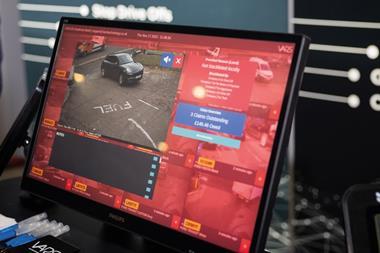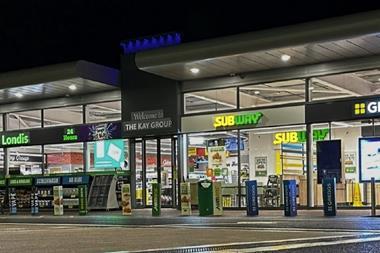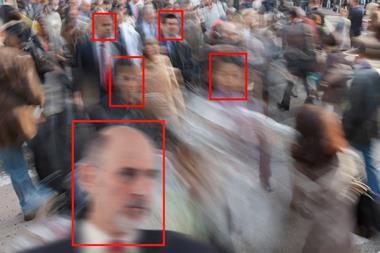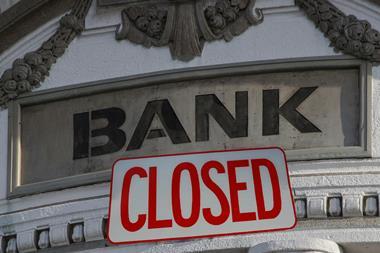Forecourt crime is a major drain on the sector’s finances. Previous surveys have put the cost at more than £30m a year and BOSS (British Oil Security Syndicate) is finalising the results of its latest forecourt crime survey and intends to publish them later in the summer.
BOSS chief executive Kevin Eastwood says the challenges facing retailers are being raised with government through regular meetings with the Attorney General and BOSS is also a member of the Home Office Senior Steering Group. BOSS also works closely with the Home Office’s National Fraud Intelligence Bureau and Action Fraud.
Although robbery and attacks on cash machines catch the headlines, the vast majority of crimes on forecourts are drive-offs and increasingly people claiming they have no means of payment who never return to pay the debt.
The scale of the problem is demonstrated by BOSS recovering £500,000 for retailers in the first six months of this year alone.
Eastwood says: "The BOSS Payment Watch scheme is continuing to prove extremely popular and effective, helping participating retailers to recover up to 80% of financial losses incurred in no-means-of-payment incidents.
"BOSS Payment Watch is underpinned by the services of a professional debt recovery agency, which has helped to recover £2.5m of no-means-of-payment debts for retailers. We have some exciting developments planned during the next 12 months. We’re working on publishing a vehicle Hot List, which will be linked to the ERS (electronic reporting service), and we’re exploring further developments in tackling drive-offs."
ERS enables fuel retailers to report details of no-means-of-payment incidents online quickly and easily, along with relevant supporting evidence (including video and photographs), thus enhancing the chances of recovering the debt.
Additional support for retailers is provided within ERS as they can:
check vehicle details held at the DVLA, such as make, colour, fuel type;
check if the vehicle in question is taxed;
check if the vehicle in question has an MOT;
validate a postcode/check an address against a postcode.
All these checks can be done before the customer leaves the forecourt, if they have no other means of identification.
Eastwood adds: "The new and improved Payment Watch means that more than 4,500 instances of multiple offending have been referred to Action Fraud during the past year, resulting in numerous successful prosecutions.
"BOSS supports its retailers and has attended court on numerous occasions to ensure continuity of evidence which has led to successful outcomes. We will challenge the CPS (Crown Prosecution Service) if we do not agree with their decisions and, where police decide not to progress a case which we believe is inappropriate, we also make representation to much higher levels on behalf of our members."
BOSS has also worked with police services across the country to establish Forecourt Watch, and Eastwood says it remains one of the most effective tools to bring retailers and police forces together.
Technology is also developing to help forecourt retailers defeat criminals, with a number of systems combining high definition CCTV and ANPR (automatic number plate recognition) to scan vehicles on the forecourt, and some even linking up to epos systems to monitor transactions, and providing incident reports for police and debt collection agencies. Tokheim Eye, which is installed by Tokheim’s agent Metro Security, is one such system and has been taken up by more than 300 UK sites and one of the major oil companies.
Another system, which is widely used in Australia, is being introduced into the UK by Online Image Analysis working with several other companies. It monitors number plates as they enter the forecourt and will highlight any on a watch list to the cashier so they can request pre-payment on fuel. A debt collection recovery service is also provided by Forecourt Eye.
A pilot installation on nine sites in the north is due to go live soon. Director Robert Morgan says that in Australia retailers’ losses on drive-offs and no means of payment can be as high as $10,000 a year, and he is asking forecourt retailers to take part in an online survey to research the scale of the problem in the UK at www.surveymonkey.com/r/XP9VTRJ.
Colin Campen of Oakhill Service Station, Woodford, London, invested in an ANPR system after visiting the Forecourt Show, because the authorities were taking no action against criminals who were driving off without paying. He says: "I’ve been in the industry for 36 years and never had a prosecution for fuel theft. I don’t blame police blowing hot and cold when the CPS will not prosecute. The new system means that you can only steal from us once. The system will shut the pump down if it recognises the number plate of an offender. Is it cost effective? I’m not sure but it gives us the satisfaction and drive-offs are lower than before."
Julia Dollin, director at Jet’s Westrope Motors in Haverhill, Suffolk, comments: "We installed our Xion IHT CCTV system four years ago, having purchased it from Inn-House Technology Ltd. We’ve found it easy to use and easy to train staff members on how to use it. As we can copy data onto disc or memory stick, it enables us to easily share data with the police.
"We also have a good alarm system that was installed by Herts & Essex Alarms, a local firm who are always willing to assist us with any alarm issues. It’s been a very reliable system. It also detects power failures, which can be really helpful as, should our freezers be turned off when the site is closed, we can take measures to reduce any loss of stock. It’s great that what are essentially vital security features can also be used to help the day-to-day running of our business."
Making sure staff have a secure working environment is a priority for Certas Energy as it expands its Scottish network. Colin Levy, retail operations manager, says: "We have invested in CCTV and panic buttons across the network and we are now trialling Staffsafe, which provides extra support and peace of mind to lone workers. In general the problems we face, with the exception of drive-offs, are minimal but we do have some inner city sites in deprived areas and that does tend to increase the potential for incidents.
"The Staffsafe offering is based on a wrist band that links by a push of a button to a call centre.
"The operator there will then immediately take charge of a situation, whether in the shop or on the forecourt, utilising the forecourt speaker system to talk directly with the perpetrator."
Levy says CCTV is also a deterrent, but drive-offs and recovering unpaid debts has become a real issue, rising by 50% on some sites over the past 24 months. To help cope with this, Certas Energy joined BOSS at the beginning of this year. He explains: "BOSS supports us in our recovery of delayed payments after an initial seven-day period. Having someone else take over a debt is proving invaluable. Our staff have enough to contend with in their day-to-day activities without becoming law enforcers. The BOSS paperwork and protocols are more authoritative and demanding and we have already seen a significant improvement in debt recovery."
Another security threat faced by forecourts is bulk fuel theft, and Fairbanks provides a theft detection and deterrent service to counter this as an integral part of its real-time fuel monitoring service. The ability to collect data from sites in real time allows it to instantly detect sudden losses, which may be due to theft.
Its ibank, which is linked to both the point-of-sale system and the tank gauge, triggers an alarm when any sudden reductions in fuel are detected, instantly notifying the site manager or owner and the Fairbanks analysts who provide round-the-clock monitoring. Using the transactional data from ibank, Fairbanks analysts can quickly verify whether the reduction in fuel was caused by theft. Fairbanks can also install siren and strobe devices as an optional upgrade to deter thieves. These devices are automatically activated by the ibank data capture module when certain criteria indicative of fuel theft are met.
Fairbanks communications manager Gareth Jenkins, comments: "Fuel theft is a huge concern to our customers. The effects of just one instance of theft can devastate a business financially. Not only does the theft deny the site of any profit that the fuel would have generated, but it can also have a large financial impact in terms of repair work. The aim of these criminals is to tap into the fuel stock as quickly and as inconspicuously as possible, which often involves vandalism to on-site equipment and the subsequent contract work can cost the site thousands of pounds not to mention the down-time and any closures that may result as a direct consequence. Another concern site owners have following a fuel theft incident is becoming a recurring target something our preventative fuel theft methods aim to address."
Case study: cot house services
Scott Murray, partner of Jet’s Cot House Services in Dunoon, Argyll, says security is given a high priority, and after being broken into, the partners decided to upgrade their CCTV and strengthen the existing remote alarm system.
He explains: "Our CCTV system is provided by AGE CCTV and was chosen as a result of our site achieving top scores in Jet’s ’Proud to be Jet’ service and standards programme, for which we were then awarded ’Diamonds’. This meant we were not only able to benefit from receiving advice from a security expert working for Jet, who then introduced us to AGE CCTV, but also used the ’Diamonds’ for the new equipment.
"Installation took place over two days and caused minimum disruption. The system has 18 high-definition cameras which ensure high-quality pictures and number-plate recognition. This has been invaluable for drive-offs and face recognition in store. Access to all cameras is linked to our smart phones via an app, so we are always in contact with the store. It’s night and day compared to our old system and worth every penny.
"Our alarm is provided by SGL/Gibsons, a local company acting as an agent nationwide. Several sensors throughout the store and on shutters mean that any intrusion will be instantly discovered.
"A call centre then calls management if the alarm is triggered. It is a great deterrent foremost, but also gives us peace of mind to know that any intrusion will be instantly discovered.
"We’ve also linked this to a trip switch for all the forecourt lights to come on if the alarm sounds outside of opening hours, both in the shop and the forecourt. Panic buttons are also under each till for staff to use if in any danger."
Case Study
Criminals have resorted to a highly dangerous way of blowing up cash machines using gas, but Gunnebo has devised a system to foil this type of attack. Gunnebo UK key account manager, Steve Lockhart, says: "Gunnebo’s award-winning ATM Gas Attack Protection (GP-X) has a proven record of success and we are proud to provide solutions that will protect ATMs from any physical type of security threat including ram raid and rip out attacks.
"The GP-X system, which has been developed jointly with Leeds-based Safe & Vault Company, can be retro-fitted or installed at manufacturing stage to any ATM and has already foiled three raids on bank cash machines, saving between £125,000 and £250,000 on each occasion and meaning no loss of business or collateral damage to the building.
"The system, which detects gas, triggers an alarm and prevents an explosion, continues to create a stir throughout the industry and is already being rolled out with three high street banks.
"Potential customers are queueing up and the company is in discussions with other major organisations in the UK and attracting interest from across Europe.
"Gas attacks had been happening in Europe long before they started in the UK. There have been around 200 attacks on UK ATMs over the past four years and GP-X is being seen as a real solution.
"Forecourt managers and owners can talk to their ATM suppliers to find out what their anti-gas attack measures are and we are always happy to give advice."
































No comments yet